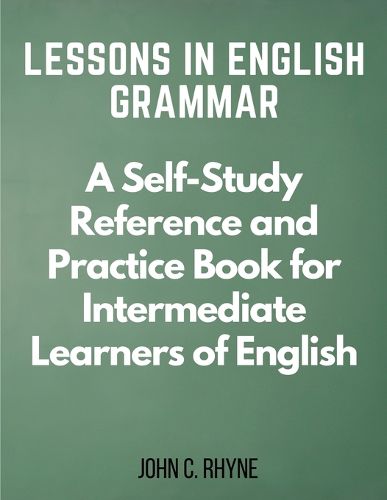Readings Newsletter
Become a Readings Member to make your shopping experience even easier.
Sign in or sign up for free!
You’re not far away from qualifying for FREE standard shipping within Australia
You’ve qualified for FREE standard shipping within Australia
The cart is loading…






This title is printed to order. This book may have been self-published. If so, we cannot guarantee the quality of the content. In the main most books will have gone through the editing process however some may not. We therefore suggest that you be aware of this before ordering this book. If in doubt check either the author or publisher’s details as we are unable to accept any returns unless they are faulty. Please contact us if you have any questions.
A Noun is the name of any person, place, or thing, that can be known or mentioned: as, George, York, man, apple, truth.
All words and signs taken technically, (that is, independently of their meaning, and merely as things spoken of, ) are nouns; or, rather, are things read and construed as nouns; because, in such a use, they temporarily assume the syntax of nouns.
An Adjective is a word added to a noun or pronoun, and generally expresses quality: as, A wise man; a new book. You two are diligent.
Adjectives have been otherwise called attributes, attributives, qualities, adnouns; but none of these names is any better than the common one. Some writers have classed adjectives with verbs; because, with a neuter verb for the copula, they often form logical predicates: as, "Vices are contagious."
The Latin grammarians usually class them with nouns; consequently their nouns are divided into nouns substantive and nouns adjective. With us, substantives are nouns; and adjectives form a part of speech by themselves. This is generally acknowledged to be a much better distribution. Adjectives cannot with propriety be called nouns, in any language; because they are not the names of the qualities which they signify.
They must be added to nouns or pronouns in order to make sense. But if, in a just distribution of words, the term "adjective nouns" is needless and improper, the term "adjective pronouns" is, certainly, not less so: most of the words which Murray and others call by this name, are not pronouns, but adjectives.
$9.00 standard shipping within Australia
FREE standard shipping within Australia for orders over $100.00
Express & International shipping calculated at checkout
This title is printed to order. This book may have been self-published. If so, we cannot guarantee the quality of the content. In the main most books will have gone through the editing process however some may not. We therefore suggest that you be aware of this before ordering this book. If in doubt check either the author or publisher’s details as we are unable to accept any returns unless they are faulty. Please contact us if you have any questions.
A Noun is the name of any person, place, or thing, that can be known or mentioned: as, George, York, man, apple, truth.
All words and signs taken technically, (that is, independently of their meaning, and merely as things spoken of, ) are nouns; or, rather, are things read and construed as nouns; because, in such a use, they temporarily assume the syntax of nouns.
An Adjective is a word added to a noun or pronoun, and generally expresses quality: as, A wise man; a new book. You two are diligent.
Adjectives have been otherwise called attributes, attributives, qualities, adnouns; but none of these names is any better than the common one. Some writers have classed adjectives with verbs; because, with a neuter verb for the copula, they often form logical predicates: as, "Vices are contagious."
The Latin grammarians usually class them with nouns; consequently their nouns are divided into nouns substantive and nouns adjective. With us, substantives are nouns; and adjectives form a part of speech by themselves. This is generally acknowledged to be a much better distribution. Adjectives cannot with propriety be called nouns, in any language; because they are not the names of the qualities which they signify.
They must be added to nouns or pronouns in order to make sense. But if, in a just distribution of words, the term "adjective nouns" is needless and improper, the term "adjective pronouns" is, certainly, not less so: most of the words which Murray and others call by this name, are not pronouns, but adjectives.